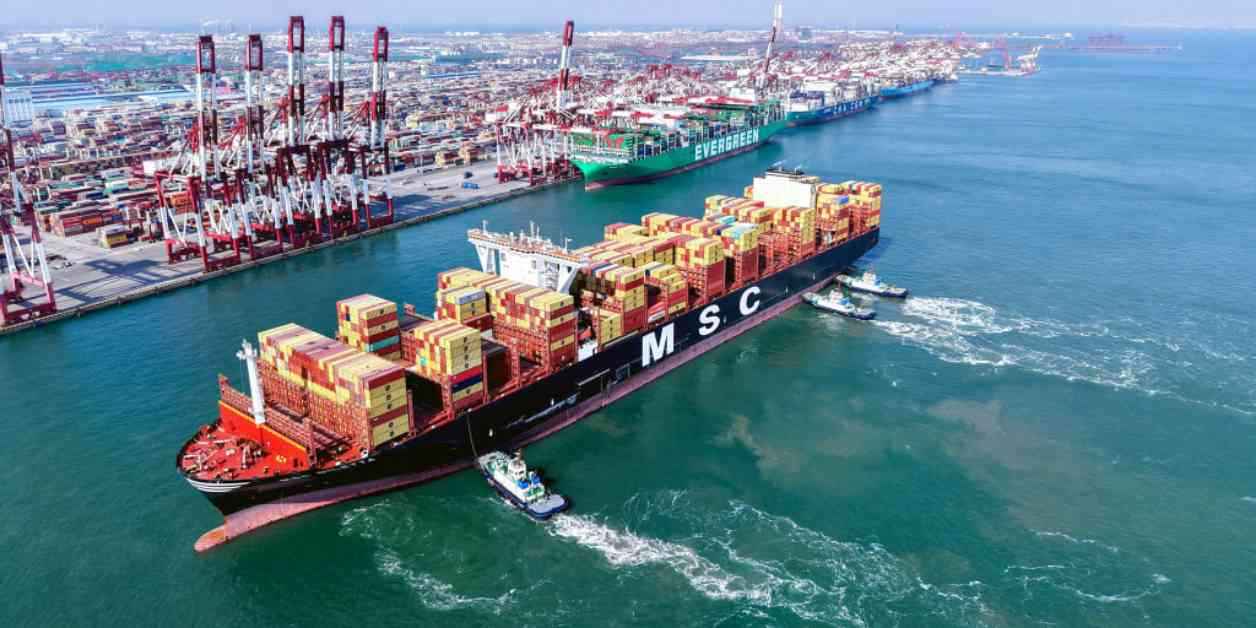Trade Tensions Surge as China and Canada Retaliate Against U.S. Tariffs
In a swift response to newly imposed U.S. tariffs, China and Canada have announced their own levies on U.S. goods, escalating trade tensions that could disrupt the United States’ trade with its top three trading partners. The 25% U.S. tariff on nearly all goods imported from Canada and Mexico, alongside an additional 10% tariff on goods from China, took effect just after midnight. These three countries accounted for over 40% of total U.S. imports last year, serving as the top three U.S. export markets.
China Strikes Back
China has vowed to impose additional tariffs on some U.S. goods, with the new levies set to take effect on March 10. These tariffs include a 15% tariff on commodities like chicken, wheat, corn, and cotton, as well as a 10% tariff on sorghum, soybeans, pork, beef, fruits, vegetables, dairy, and fish products. The move has been met with criticism, with the Chinese government asserting that the U.S. tariffs undermine cooperation between the world’s two largest economies, adversely impacting American businesses and consumers, as well as international trade.
“The Chinese people have never believed in coercion or intimidation, nor do we succumb to bullying and hegemonic tactics,” remarked Chinese Foreign Ministry spokesperson Lin Jian. He emphasized that pressure, threats, and coercion are not the right way to engage with China, suggesting that the U.S. might be targeting the wrong country and miscalculating its moves. Furthermore, Lin highlighted China’s efforts to combat the international flow of fentanyl, a key justification for the tariffs on China, Canada, and Mexico, suggesting that the U.S. is using fentanyl as an excuse to wage a trade war.
Canada’s Stand
On the other hand, Canada has confirmed its plan to impose 25% tariffs on $155 billion Canadian dollars ($107 billion) worth of American goods in response to the U.S. tariffs. The tariffs on $20.7 billion worth of goods are effective immediately, with the remaining $86.3 billion set to face tariffs in 21 days. Canadian Prime Minister Justin Trudeau stated that these tariffs would remain until the U.S. trade action is withdrawn, expressing concern over the potential impact on Americans.
“Because of the tariffs imposed by the U.S., Americans will pay more for groceries, gas, and cars, and potentially lose thousands of jobs,” Trudeau warned. He underscored that tariffs would disrupt a successful trading relationship and violate the very trade agreements negotiated in the past, emphasizing the need for a more diplomatic approach to resolve trade issues. Despite these tensions, Canada has maintained its efforts to combat the international flow of fentanyl, showcasing a significant reduction in fentanyl seizures as part of its commitment to addressing the issue.
As the tariff war unfolds, the global economic landscape faces uncertainty and potential repercussions. The U.S.-China tariff tit-for-tat coincides with major political events in China, such as the National People’s Congress, where the country’s priorities and approach to international relations will be outlined. The retaliatory measures by China and Canada highlight the complexities of international trade and the need for strategic diplomacy to navigate these challenges.
Jennifer Jett and Peter Guo, seasoned journalists with a pulse on the ever-evolving trade dynamics in Asia, provide valuable insights into the escalating trade tensions between key global players. Their expertise sheds light on the multifaceted nature of international trade disputes and the far-reaching implications for economies worldwide. As the trade saga continues to unfold, it underscores the importance of dialogue, cooperation, and diplomacy in resolving conflicts and fostering sustainable trade relationships.


